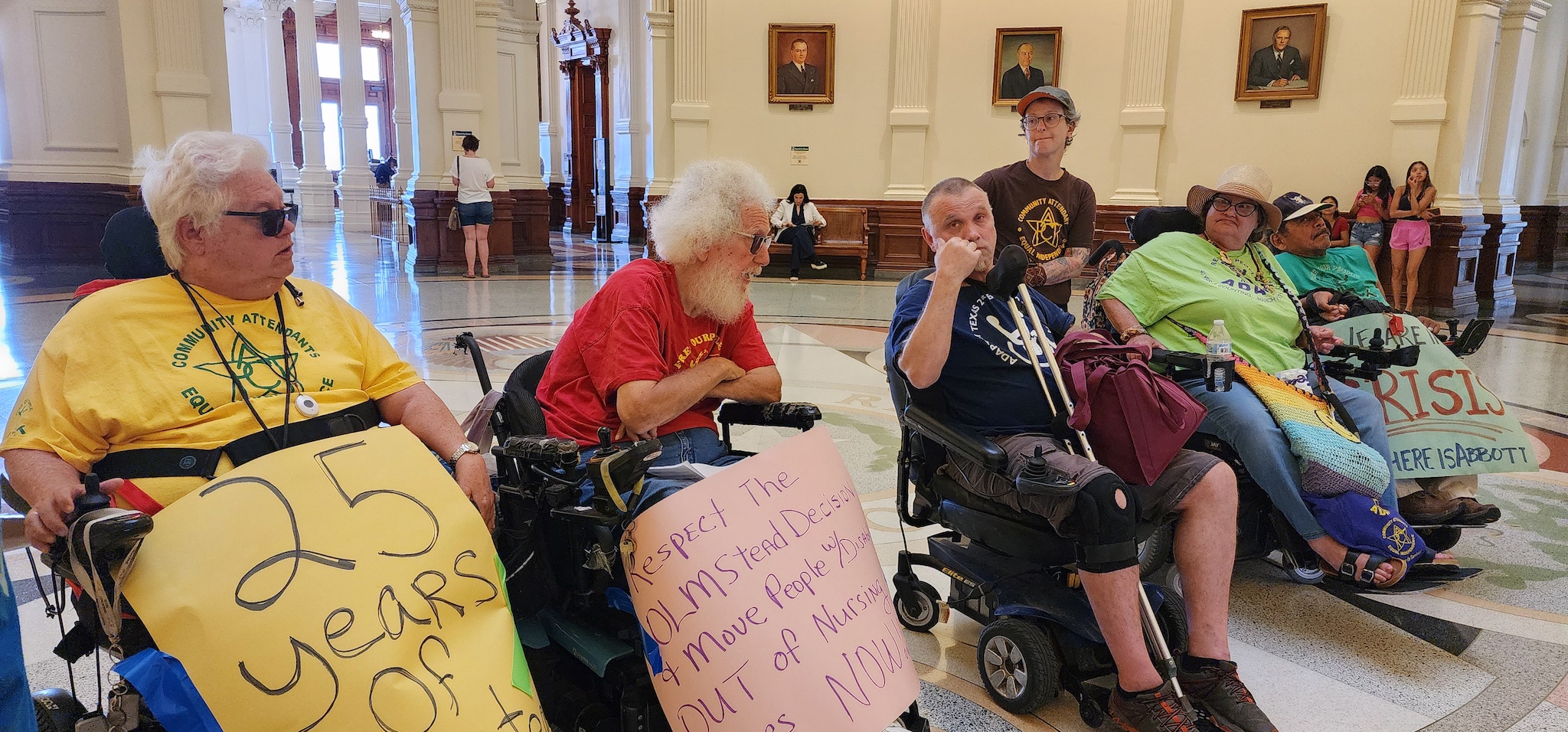Over at Deceleration, I interviewed two extremely experienced disability rights organizers from ADAPT of Texas and its sister org, Personal Attendants Coalition of Texas. It’s part of a new series on how Texas communities are preparing for Trump and the new legislative session:
For the past 40 years, ADAPT of Texas has advocated for the world to be more accessible, so that more disabled people can live in their communities, rather than in institutions. The progress this community has made in that timespan, which includes the 1990 passage of the Americans with Disabilities Act, is remarkable. At 78 years old, community organizer Bob Kafka has been there to witness those changes. Like many in the rabble-rousing organization, he’s not afraid to throw his body, and his wheelchair, in the way of the machinery of injustice; he was present at key moments of nonviolent direct action like the Capitol Crawl and the subsequent occupation of the Capitol rotunda which forced Congress to pass the ADA.
Today, the disability rights community is looking at the incoming administration with trepidation, preparing to fight attempts to dismantle their hardfought gains. In a state where the governor is himself disabled yet often seems actively hostile to their cause, ADAPT organizers are prepared to ramp up pressure on Texas lawmakers to improve the state’s treatment of disabled people and their caregivers.
In a recent phone conversation with Deceleration, Kafka was joined by Cathy Cranston, an organizer in sister organization PACT (Personal Attendants’ Coalition of Texas). Both organizations have spent years advocating for a pay raise for caregivers and personal attendants, who make as little as $10.60 per hour for public insurance (such as Medicare) in Texas, despite the physically intensive nature of caring for another human being. As a result of these low wages, people like Kafka, who depend on their attendants for crucial everyday tasks like bathing or dressing themselves, often struggle to hire and keep their caregivers.
